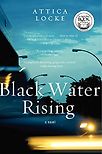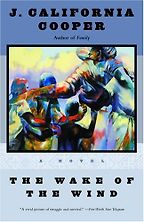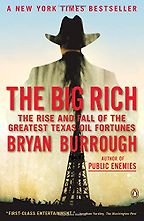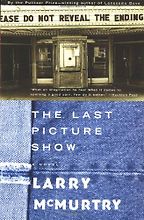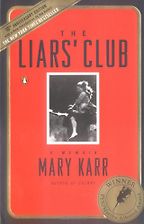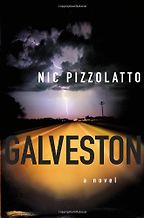Texas was its own country until 150 years ago. “The Lone Star State” celebrates its independence so strongly that it was no surprise when your current governor suggested secession should remain an option. Texas has a distinct cuisine and a distinct folklore – does it have a distinct literary tradition?
There’s a particular voice – when I read it I know it, and I feel at home. I picked five books that were written over a span of 50 years. They include history, memoir and fiction. They’re about freed slaves, oil barons and gangsters on the run. They are very different from each other, but each has an outlaw or outlier spirit. It may be a cliché but the reason outlaw is applied to Texas so much is because there’s truth in it.
Your acclaimed novel Black Water Rising is set in Houston, your hometown. But you’ve moved west. Do you consider yourself a Texas writer?
Texas remains my world. It’s the world that I want to explore down to the dust. I’m just drawn to knowing more and writing more about Texas, and that says I’m a Texas writer. What’s ironic is the fact that I can write about the state with greater clarity now that I live in Southern California. My affection for the state, with all of its faults, has only grown stronger since I’ve moved away. It’s something my husband does not understand. He grew up in Missouri and doesn’t get how I can have such quarrels with Texas, yet still love it with my whole heart and soul. I try to explain that not everybody is Rick Perry or George W Bush. Texas is an increasingly diverse and vibrant state populated mostly by folks you’d never associate with a 10-gallon hat.
The books you chose bring out the diversity you describe. Let’s begin with a book about Texas before it struck oil, J California Cooper’s The Wake of the Wind. Please tell us about it.
To my mind, J California Cooper is one of the most under-read American authors alive. Wake of the Wind is a story about living in the wake of the Civil War and emancipation, a picture of a nation and a state in transition. It’s a beautiful sweeping story about a black family trying to navigate a new landscape – a new cultural, political and physical landscape. And about how a recently emancipated people struggled for their version of the American dream. There’s so much literature about what it was to be enslaved and not nearly enough literature about what it was for people to learn to be free, become landowners, reunite with relatives, and put a life together.
It’s a point of pride for me that Juneteenth, a commemoration of emancipation celebrated among blacks, started in the state of Texas. It takes place on June 19, the day – 200-plus years ago – that the Emancipation Proclamation finally was enforced in Texas, more than two and a half years after President Lincoln signed it. Now people celebrate Juneteenth all over the country, it’s an official holiday in 39 states. It became a day in which people celebrate their freedom.
How does this book fit into the outlaw theme you’ve identified?
It turns the concept on its head. In The Wake of the Wind it’s people in power, people behind the badge, the whites who fear their way of life is “gone with the wind” – they’re the ones who operate outside the law in this story and throughout reconstruction.
Moving forward to the 20th century, when Texas struck it rich, you chose The Big Rich. One reviewer wrote that it’s about “capitalism at its most colourful”. Tell us about Bryan Burrough’s book and Texas’s distinctive brand of super-rich.
There’s no way to understand the culture and politics of Texas without talking about oil. It’s just not possible. The Big Rich follows four men who used to be called “The Big Four”: Roy Cullen, HL Hunt, Clint Murchison and Sid Richardson. These are the men after whom streets are named in Texas. The book starts all the way back in 1901, when oil was first discovered in Beaumont, Texas and stretches through the second half of the 20th century. For the most part these men came from very modest backgrounds. I think one was an elementary school dropout. They were called wildcatters, a name that reflects their risk-taking and outsized personalities.
Support Five Books
Five Books interviews are expensive to produce. If you're enjoying this interview, please support us by donating a small amount.
People who remember the TV show Dallas might think the brand of conspicuous consumption associated with it is hyperbole. When you read this book you realise it was grounded in reality. These guys had huge mansions and every toy under the sun. They were from the sticks, but ended up travelling the world and entertaining world leaders.
I understand oil production just counts for a fraction of the revenue nowadays. Is oil still essential to understanding Texas today?
In my opinion, yes. You cannot separate oil from the state. The oil industry fuelled the rise of Texas and even though oil production isn’t dominant, the energy industry as a whole still looms large over the state and cities like Dallas and Houston. In the world’s imagination, we’ll always be associated with oil. Plus, as The Big Rich shows, oilmen were able to insinuate themselves into state and national politics. They used their oil money to lubricate the rise of the conservative movement and help along the careers of the three Texans who landed in the White House. This book came out in 2009, before the BP oil spill. Reading it will give you a sense of how we arrived where we’ve arrived in terms of oil power in our economy and our politics.
Next on your list, Larry McMurtry might be better known for his Pulitzer Prize-winning Lonesome Dove. Why did you select his 1966 novel about a North Texas town, The Last Picture Show?
The Last Picture Show captures the adolescent energy that epitomised the state in the second half of the 20th century, when Texas was taking off in people’s imaginations. It takes place in 1951, on the eve of a real explosion in car culture and as the state is about to really come into its own. That reckless adolescent energy, which McMurtry wrote into the book, just speaks to the state at that time, in my opinion. It’s about best friends and a girl that comes between them in this little town called Thalia. At the beginning of the book, these boys have just played their last game of high-school football. It’s time for them to move but there is nowhere for them to go so they just roll around like tumbleweed.
Do we learn anything about Texas from reading this book?
One of the things that he’s able to do is to draw a vivid picture of this dusty rural North Texas town. He does a beautiful job of juxtaposing the claustrophobia of small Texas towns with the wide-open spaces of rural Texas.
Does this world that McMurtry was writing about still exist?
When I drive through Texas now I find that the places which once might’ve been like Thalia have disappeared or been swallowed up by surrounding sprawl. They’ve thrown up a bunch of Walmarts and Starbucks. Now they look like anywhere, instead of what they once were. And those small-town theatres that McMurtry made the centrepiece of The Last Picture Show? Everyone knows they’ve been replaced by megaplexes.
The Liars’ Club is a memoir in which Mary Karr looks back at her upbringing in an East Texas refinery town. What makes it worth reading?
The book starts with Mary Karr’s recollection of her mother, this tall striking woman who seemed out of place in this small, stinky, chemical-waste town. Her husband worked in a refinery. She was an artist who dreamed of a different life but was locked down by whatever was expected of her at that time in our nation’s history and in this region. There’s a lot of rage, alcohol and guns in this book. I cannot say enough about the power of Mary Carr’s voice. It’s the kind of book you almost want to read out loud. And it’s just so Texas, so specific East Texas. It’s like I grew up down the street and went to high school with her. Liars’ Club makes the reader feel like they’re sitting at a bar with somebody who is telling them about their crazy fucking life over cocktails. It’s fantastic.
What can we learn about the lives of ordinary oil workers by reading it?
The book paints a picture of how oil towns feel. My dad actually worked in oil – Shell Oil in Houston. People who work at refineries form a brotherhood. I wouldn’t go so far as to compare it to the military, but almost. Dangerous work, weird hours and lots of accidents produce a culture of people who look after each other. Women at times get left behind, either because the men are out on rigs or working in the Gulf or on the night shift. This book really captures the culture that comes from oil work.
Finally, Galveston is a noir novel about a road trip along the Gulf Coast of Texas by Nic Pizzolatto. What makes it worth reading?
It’s just a great piece of fiction, lean and literary. The book starts out in New Orleans and ends up in Galveston. Those cities, to me, share the same soul. A lot of people don’t realise how French Galveston is – Galveston’s town centre looks very much like the French Quarter in New Orleans and there are a lot of Creole folk there. There’s symmetry between the two cities.
The story starts in New Orleans with this guy Roy, who works for people connected to the underworld. He finds out he may not have that long to live, he gets into trouble, there’s a big shoot-out within the first couple of chapters and he ends up on the run with this barely legal girl. They hide out in Galveston. A lot of the action takes place on the eve of Hurricane Ike. Ike devastated Galveston in 2008. So many of the places Pizzolatto wrote about aren’t there any more. It’s particularly poignant to read it while realising what the city is about to go through. Hurricanes are part of the way of life along the Gulf. I’ve spent a lot of time in Galveston because I’m a Gulf girl. Pizzolatto really captures coastal Texas to a T.
Your selection demonstrates the diversity within your home state, which is bigger than Spain or France.
As you say, Texas is big. It is geographically, ethnically and culturally diverse. I’m from Houston, which is part of East Texas. East Texas borders Louisiana. Parts of it are more like New Orleans than Arizona. East Texas is lumber country – they call it “the big thicket”. It couldn’t look more different than tumbleweed territory. It seems more southern than Waco, which is in West Texas and it’s much less western than El Paso or San Antonio, the town of the Alamo. Texas is not typically Southern or entirely Western in feel. Texas is its own thing.
August 15, 2011. Updated: September 5, 2021
Five Books aims to keep its book recommendations and interviews up to date. If you are the interviewee and would like to update your choice of books (or even just what you say about them) please email us at [email protected]

Attica Locke
Texan Attica Locke’s noir novel Black Water Rising was nominated for numerous awards and long-listed for the Orange Prize. The New York Times compared it to the work of Dennis Lehane. A successful screenwriter, Locke now lives in Los Angeles.

Attica Locke
Texan Attica Locke’s noir novel Black Water Rising was nominated for numerous awards and long-listed for the Orange Prize. The New York Times compared it to the work of Dennis Lehane. A successful screenwriter, Locke now lives in Los Angeles.

